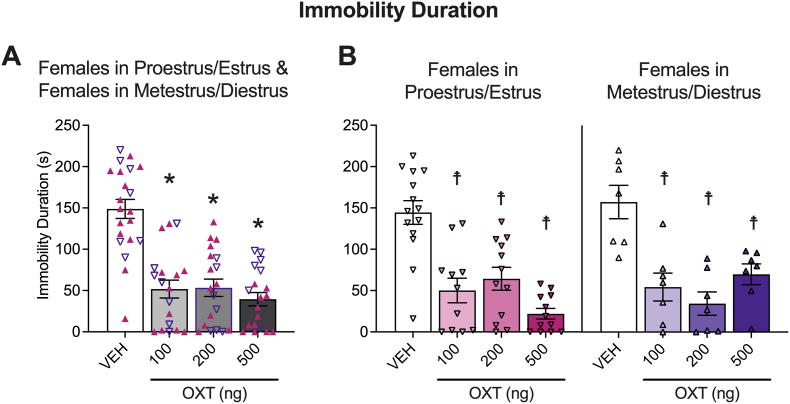Fig. 6.
Oxytocin (OXT) decreased depression-like behavior in the tail suspension test in female mice in proestrus/estrus and metestrus/diestrus phases of the estrous cycle. Oxytocin reduced immobility duration of females regardless of estrous cycle. The plots show pooled data (A) for females in proestrus/estrus, represented as ▲, and females in metestrus/diestrus, represented as ▽. Separate plots for females in proestrus/estrus and females in metestrus/diestrus are also shown (B). Two-way ANOVAs were calculated to analyze the females in proestrus/estrus vs. females in metestrus/diestrus data. The Holm-Sidak's multiple comparison test followed the main effect of treatment for immobility duration.*p < 0.05, difference from vehicle (VEH) in pooled plots. Because the estrous cycle phase × treatment interaction approached significance for immobility duration, Holm-Sidak's multiple comparison tests were used to further assess the females in proestrus/estrus and females in metestrus/diestrus data separately; ☨p < 0.05, difference from VEH in separate plots. See Section 3.4 (Results) for details.

